i would say being able to do flips is pretty good. Aside from boston dynamics, nobody else has done thatI am aware that Tesla's robots get a lot more airtime due to their marketing, but for all of these companies (US and China and other nations) and their products when we account for their marketing hoopla they are all meaningfully more impressive than Magiclab.
As for when Magiclab was founded -- I personally wouldn't be too impressed by what they are demonstrating so far simply based on when they were founded. Depending on where the company came from and the expertise that the employees may have already had, their demonstrations so far are fairly basic stuff for humanoid robots -- it's all rather conservative and could be a mere reflection of the commoditized technologies that are available in China for basic humanoid robots.
They are worth keeping half an eye out on sure, but right now they're among a half dozen if not more Chinese humanoid robot makers who are only showcasing very basic abilities.
You are using an out of date browser. It may not display this or other websites correctly.
You should upgrade or use an alternative browser.
You should upgrade or use an alternative browser.
Robotics and humanoid robotics & civilian drones discussion
- Thread starter tphuang
- Start date
Beijing based Humanoid Robotic firm "Q Family" revealed series of Robots. looks very promising..
"Q Family" humanoid robots developed by the research team of the Institute of Automation, Chinese Academy of Sciences, recently made their public debut in Beijing.
Led by Qiao Hong, an academician of Chinese Academy of Sciences and director of the state key laboratory of multimodal artificial intelligence systems, the research team built a "big factory" for the design and assembly of the humanoid robots.
Several prototypes of "Q Family" humanoid robots have obtained preliminary technical verification.
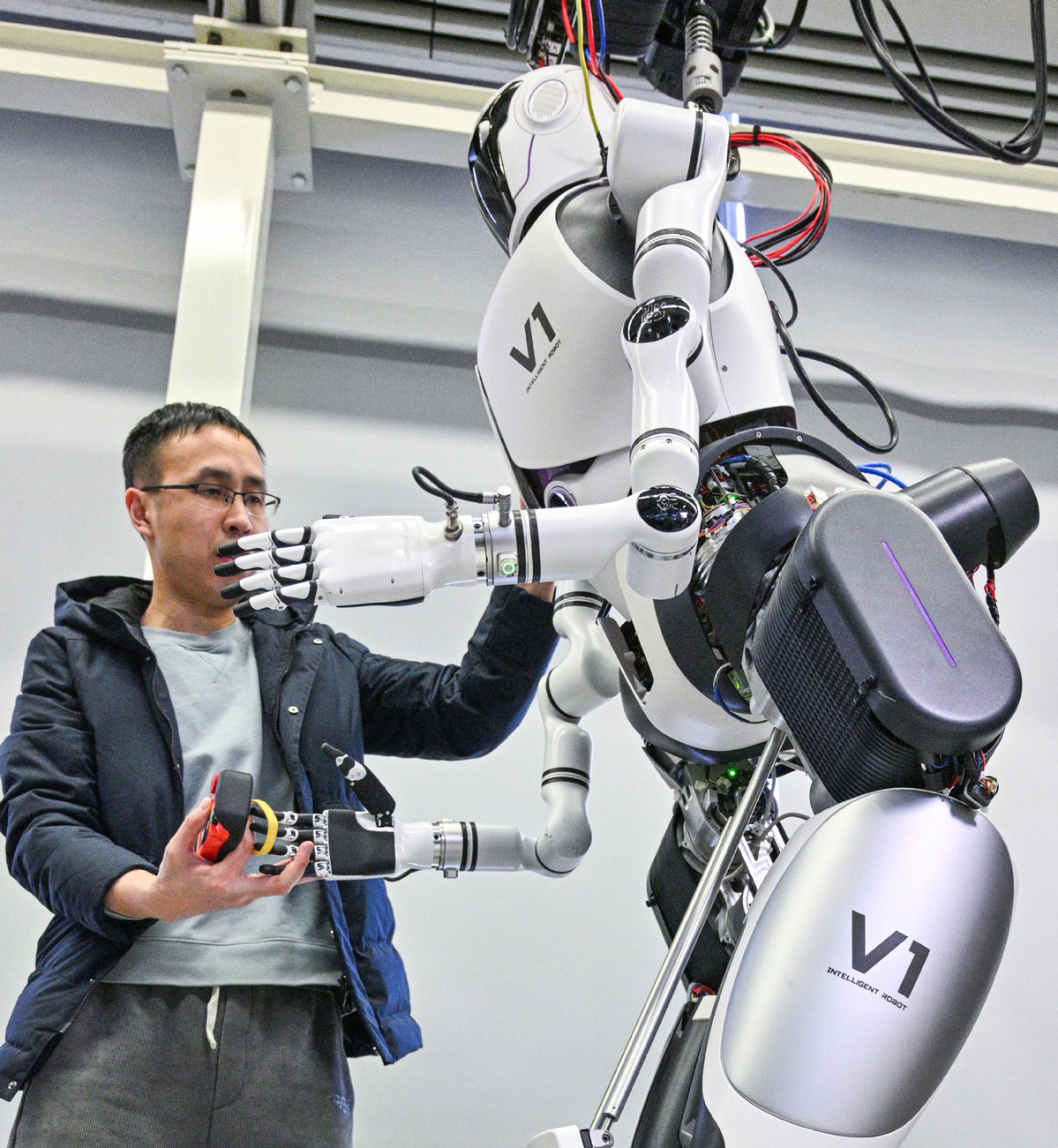
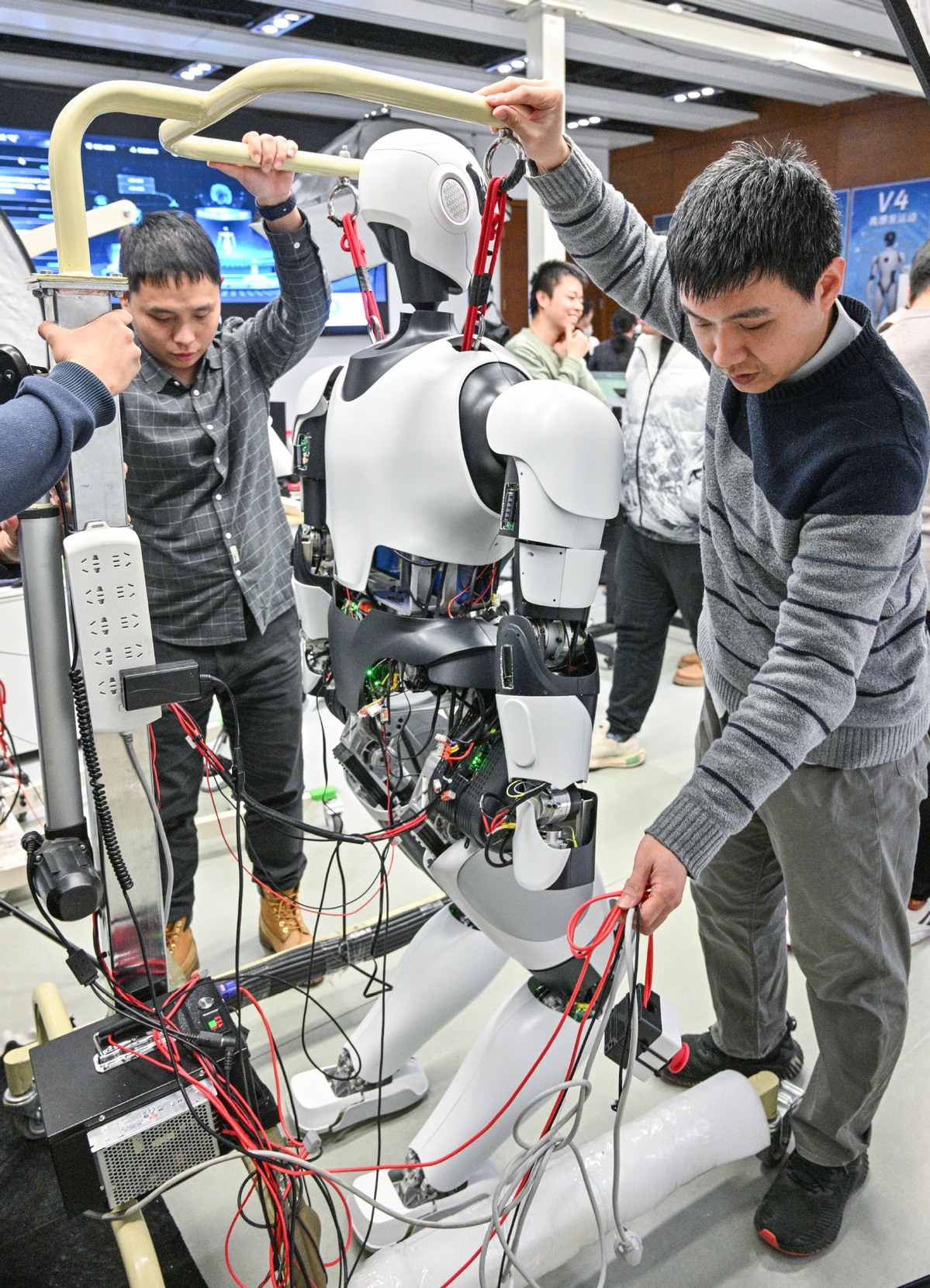
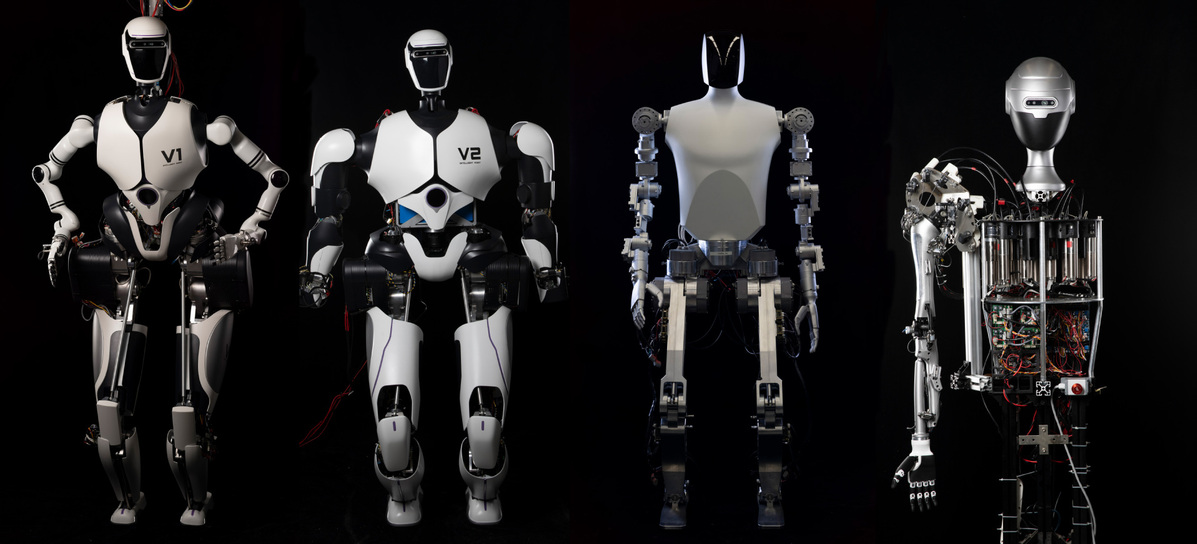
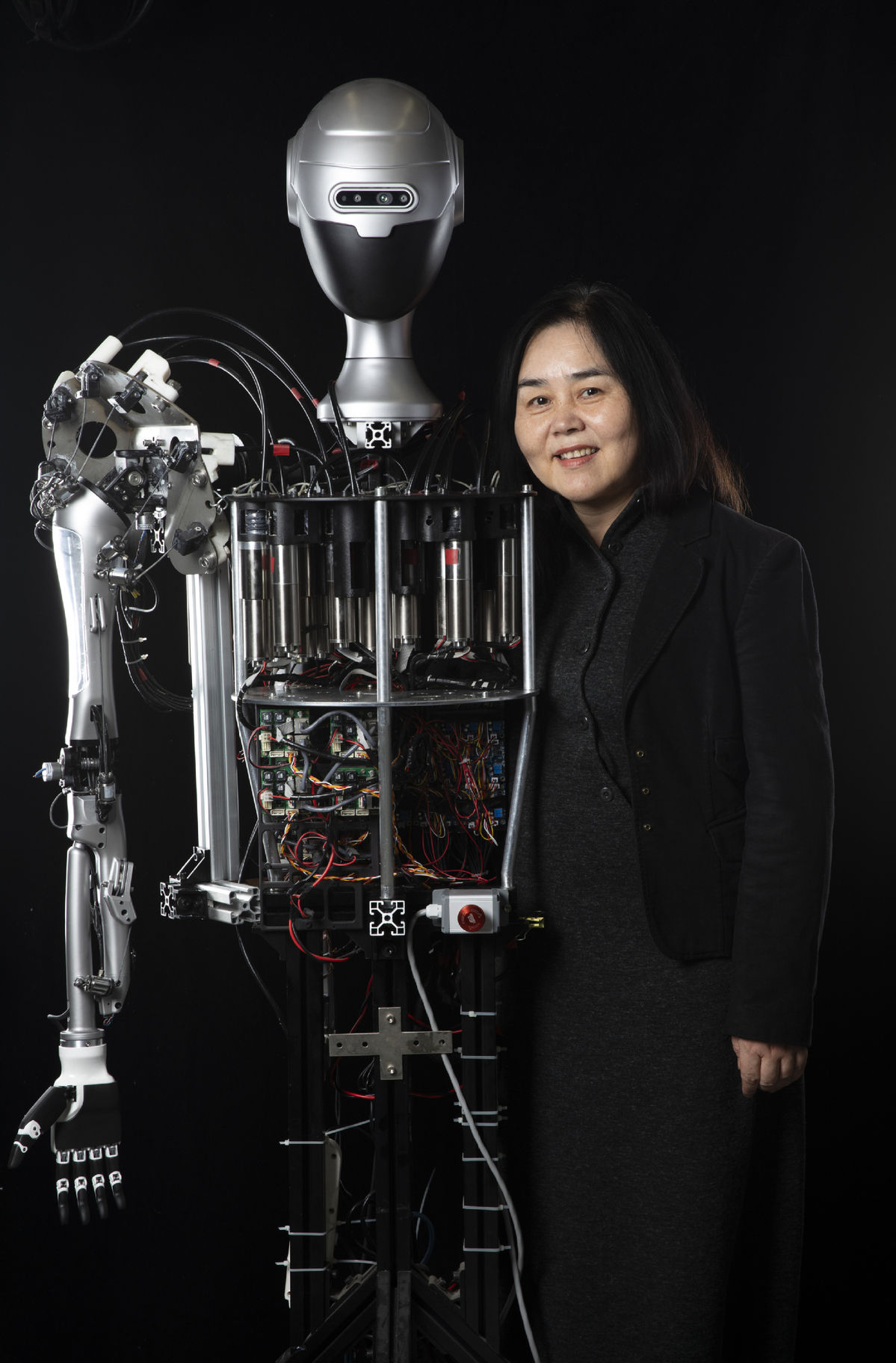
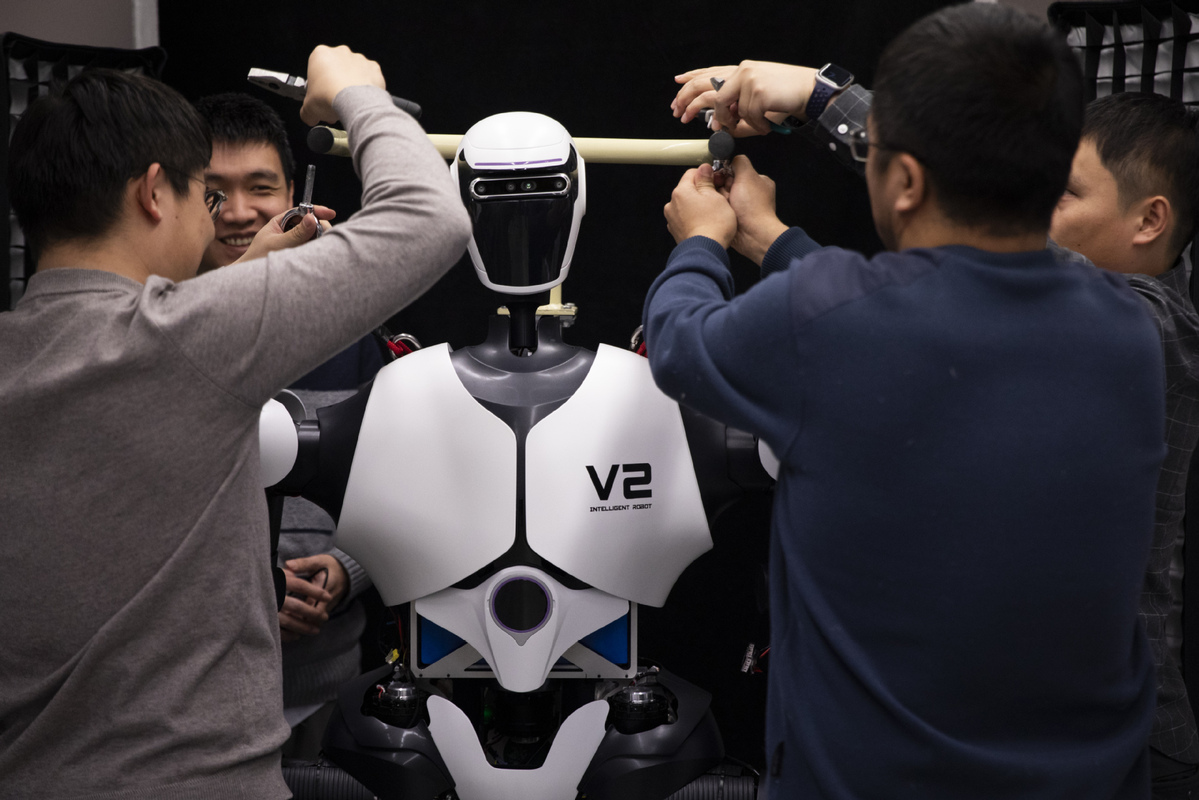
"Q Family" humanoid robots developed by the research team of the Institute of Automation, Chinese Academy of Sciences, recently made their public debut in Beijing.
Led by Qiao Hong, an academician of Chinese Academy of Sciences and director of the state key laboratory of multimodal artificial intelligence systems, the research team built a "big factory" for the design and assembly of the humanoid robots.
Several prototypes of "Q Family" humanoid robots have obtained preliminary technical verification.





broadsword
Brigadier
A boom in the proliferation of humanoid developers is happening, as in wind turbines, solar cells, EV batteries, robot vacuums, etc. Japan and South Korea's lead is going to disappear soon.
i don't follow Korean/Japanese Humanoid Robots development but i seriously doubt they are ahead. China has commercialization and supply chain advantage over any country when it comes to Humanoid Robots.A boom in the proliferation of humanoid developers is happening, as in wind turbines, solar cells, EV batteries, robot vacuums, etc. Japan and South Korea's lead is going to disappear soon.
''Elon Musk, in talking of the prospects of Tesla’s Optimus humanoid robot, said demand for it could well balloon to 10-20 billion units in the future. But it’s in China – and only in China – that Tesla can dream of lowering the costs of humanoid robots to an affordable range – US$20,000-30,000 per unit as Musk seemed to suggest – through its massive supply network''.
China right now have dozen of Robotics companies and wide range of Robots just like EVs. this sector is rapidly evolving in mainland . this sector will also consolidate soon. and most of these companies have local supply chain.
Ubtech robots have started training at nio production lines. This is really interesting about how ai and robotics come into play together
having robots gather data on tasks they need to do and train those models so that they can keep getting better at doing those tasks. Not too different from adas
having robots gather data on tasks they need to do and train those models so that they can keep getting better at doing those tasks. Not too different from adas
Ubtech robots have started training at nio production lines. This is really interesting about how ai and robotics come into play together
having robots gather data on tasks they need to do and train those models so that they can keep getting better at doing those tasks. Not too different from adas
Seems like a gimmick. Why would you even need a humanoid robot to do this? Wheeled solution might be faster.
World is still designed for humans. Anyway, the hardware is almost there, all that prevent robots from walking around and doing jobs in the "real world" is just software, which is progressing so fast. One day, there could be a overnight software update that can turn your humanoid robot into something that can only operate in a controlled environment on the factory floor , to one that can be deployed clean your toilet. You never know. If that was the case, the country that didn't invest in the hardware is gonna to be very behind very fast.Seems like a gimmick. Why would you even need a humanoid robot to do this? Wheeled solution might be faster.
I think one of the big draw for humanoid robots, once the hardware/software improves enough, they can be deployed do other jobs/factories easily. Can't do that for a big industrial robots who sole purpose is welding and only welding. And of course, humanoid robots kinda force you to improve other aspect of technologies that robot makers don't usually consider. Things like the hands, balance, legs, sensors so that they don't accidentally crush or injure their human coworkers, all things that caged robots don't have to consider. If you really want a wheeled robot, most companies can probably easily make you a version with wheeled legs. But then you never improve your technology...
Anyway, this kind of technology are based on "potential". You might as well ask why the world is busy spending billions on far flung future technology like nuclear fusion when nuclear fission power plants can do the job already. Or why are people trying to hard to grow organs/3d print organs when we can already harvest organs from car crash victims. Why spend so much money on longevity research when you can just exercise or eat healthy. Why try to create AGI when humans can still do 90% of their jobs better. Why pour money into quantum computers when classical computers can currently do 99.999999% of their jobs better and cheaper.
Everyone can agree that this kind of technologies are probably decades away from being ready, but are so extremely game changing that every country/company would want to be at the forefront of research just in case some surprise breakthrough happens or just playing the long game by setting up the foundation in the 2040s when the technology does advance enough to be widely deployed or commercialized.
Last edited:
DeepMind's Researcher on robotics teasing huge news about robotics coming in the next weeks. Lets see what else DeepMind has on its sleeve
Stay tuned.
Stay tuned.
Last edited:

